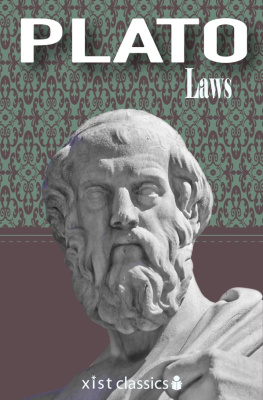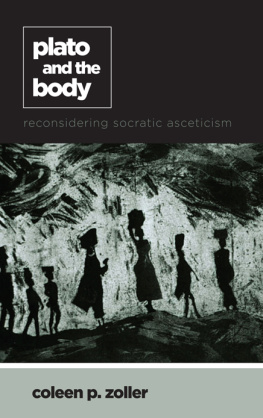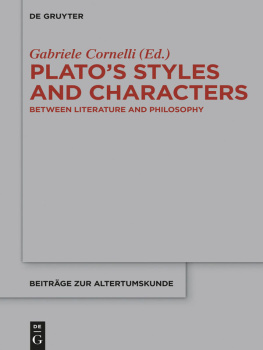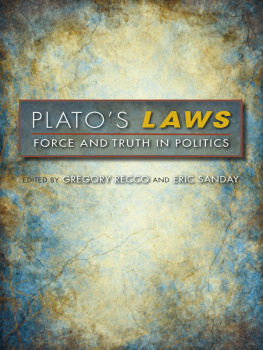Laws
Plato
translated by Benjamin Jowett
Xist Publishing
TUSTIN, CA
ISBN: 978-1-68195-697-8
This edition published in 2015 by Xist Publishing
PO Box 61593
Irvine, CA 92602
www.xistpublishing.com
Ordering Information:
Quantity sales. Special discounts are available on quantity purchases by corporations, associations, and others. For details, contact the Special Sales Department at the address above.
Laws/Plato
ISBN 978-1-68195-697-8
Xist Publishing is a digital-first publisher. Xist Publishing creates books for the touchscreen generation and is dedicated to helping everyone develop a lifetime love of reading, no matter what form it takes.
- Sign up for the Xist Publishing Newsletter here.
- Find more great titles on our websitewww.XistPublishing.com
Table of Contents
INTRODUCTION AND ANALYSIS.
The genuineness of the Laws is sufficiently proved (1) by more than twenty citations of them in the writings of Aristotle, who was residing at Athens during the last twenty years of the life of Plato, and who, having left it after his death (B.C. 347), returned thither twelve years later (B.C. 335); (2) by the allusion of Isocrates
(Oratio ad Philippum missa, p.84: To men tais paneguresin enochlein kai pros apantas legein tous sunprechontas en autais pros oudena legein estin, all omoios oi toioutoi ton logon (sc. speeches in the assembly) akuroi tugchanousin ontes tois nomois kai tais politeiais tais upo ton sophiston gegrammenais.) writing 346 B.C., a year after the death of Plato, and probably not more than three or four years after the composition of the Lawswho speaks of the Laws and Republics written by philosophers (upo ton sophiston); (3) by the reference (Athen.) of the comic poet Alexis, a younger contemporary of Plato (fl. B.C 356-306), to the enactment about prices, which occurs in Laws xi., viz that the same goods should not be offered at two prices on the same day
(Ou gegone kreitton nomothetes tou plousiou
Aristonikou tithesi gar nuni nomon,
ton ichthuopolon ostis an polon tini
ichthun upotimesas apodot elattonos
es eipe times, eis to desmoterion
euthus apagesthai touton, ina dedoikotes
tes axias agaposin, e tes esperas
saprous apantas apopherosin oikade.
Meineke, Frag. Com. Graec.); (4) by the unanimous voice of later antiquity and the absence of any suspicion among ancient writers worth speaking of to the contrary; for it is not said of Philippus of Opus that he composed any part of the Laws, but only that he copied them out of the waxen tablets, and was thought by some to have written the Epinomis (Diog. Laert.) That the longest and one of the best writings bearing the name of Plato should be a forgery, even if its genuineness were unsupported by external testimony, would be a singular phenomenon in ancient literature; and although the critical worth of the consensus of late writers is generally not to be compared with the express testimony of contemporaries, yet a somewhat greater value may be attributed to their consent in the present instance, because the admission of the Laws is combined with doubts about the Epinomis, a spurious writing, which is a kind of epilogue to the larger work probably of a much later date. This shows that the reception of the Laws was not altogether undiscriminating.
The suspicion which has attached to the Laws of Plato in the judgment of some modern writers appears to rest partly (1) on differences in the style and form of the work, and (2) on differences of thought and opinion which they observe in them. Their suspicion is increased by the fact that these differences are accompanied by resemblances as striking to passages in other Platonic writings. They are sensible of a want of point in the dialogue and a general inferiority in the ideas, plan, manners, and style. They miss the poetical flow, the dramatic verisimilitude, the life and variety of the characters, the dialectic subtlety, the Attic purity, the luminous order, the exquisite urbanity; instead of which they find tautology, obscurity, self-sufficiency, sermonizing, rhetorical declamation, pedantry, egotism, uncouth forms of sentences, and peculiarities in the use of words and idioms. They are unable to discover any unity in the patched, irregular structure. The speculative element both in government and education is superseded by a narrow economical or religious vein. The grace and cheerfulness of Athenian life have disappeared; and a spirit of moroseness and religious intolerance has taken their place. The charm of youth is no longer there; the mannerism of age makes itself unpleasantly felt. The connection is often imperfect; and there is a want of arrangement, exhibited especially in the enumeration of the laws towards the end of the work. The Laws are full of flaws and repetitions. The Greek is in places very ungrammatical and intractable. A cynical levity is displayed in some passages, and a tone of disappointment and lamentation over human things in others. The critics seem also to observe in them bad imitations of thoughts which are better expressed in Plato's other writings. Lastly, they wonder how the mind which conceived the Republic could have left the Critias, Hermocrates, and Philosophus incomplete or unwritten, and have devoted the last years of life to the Laws.
The questions which have been thus indirectly suggested may be considered by us under five or six heads: I, the characters; II, the plan; III, the style; IV, the imitations of other writings of Plato; V; the more general relation of the Laws to the Republic and the other dialogues; and VI, to the existing Athenian and Spartan states.
I. Already in the Philebus the distinctive character of Socrates has disappeared; and in the Timaeus, Sophist, and Statesman his function of chief speaker is handed over to the Pythagorean philosopher Timaeus, and to the Eleatic Stranger, at whose feet he sits, and is silent. More and more Plato seems to have felt in his later writings that the character and method of Socrates were no longer suited to be the vehicle of his own philosophy. He is no longer interrogative but dogmatic; not 'a hesitating enquirer,' but one who speaks with the authority of a legislator. Even in the Republic we have seen that the argument which is carried on by Socrates in the old style with Thrasymachus in the first book, soon passes into the form of exposition. In the Laws he is nowhere mentioned. Yet so completely in the tradition of antiquity is Socrates identified with Plato, that in the criticism of the Laws which we find in the so-called Politics of Aristotle he is supposed by the writer still to be playing his part of the chief speaker (compare Pol.).
The Laws are discussed by three representatives of Athens, Crete, and Sparta. The Athenian, as might be expected, is the protagonist or chief speaker, while the second place is assigned to the Cretan, who, as one of the leaders of a new colony, has a special interest in the conversation. At least four-fifths of the answers are put into his mouth. The Spartan is every inch a soldier, a man of few words himself, better at deeds than words. The Athenian talks to the two others, although they are his equals in age, in the style of a master discoursing to his scholars; he frequently praises himself; he entertains a very poor opinion of the understanding of his companions. Certainly the boastfulness and rudeness of the Laws is the reverse of the refined irony and courtesy which characterize the earlier dialogues. We are no longer in such good company as in the Phaedrus and Symposium. Manners are lost sight of in the earnestness of the speakers, and dogmatic assertions take the place of poetical fancies.
The scene is laid in Crete, and the conversation is held in the course of a walk from Cnosus to the cave and temple of Zeus, which takes place on one of the longest and hottest days of the year. The companions start at dawn, and arrive at the point in their conversation which terminates the fourth book, about noon. The God to whose temple they are going is the lawgiver of Crete, and this may be supposed to be the very cave at which he gave his oracles to Minos. But the externals of the scene, which are briefly and inartistically described, soon disappear, and we plunge abruptly into the subject of the dialogue. We are reminded by contrast of the higher art of the Phaedrus, in which the summer's day, and the cool stream, and the chirping of the grasshoppers, and the fragrance of the agnus castus, and the legends of the place are present to the imagination throughout the discourse.
Next page












